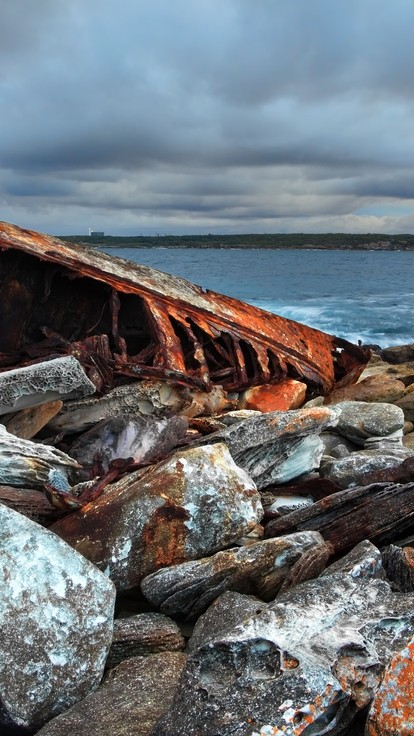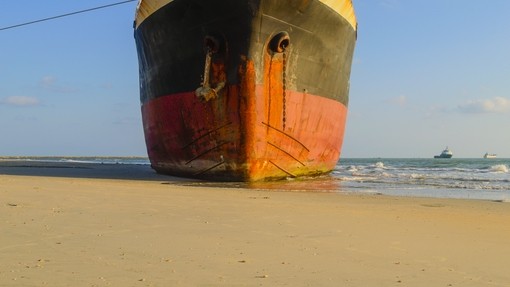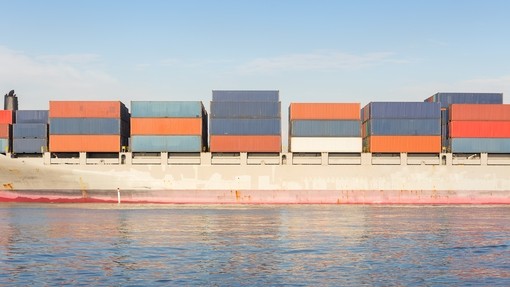The Queen (on the application of Knight) -v- Secretary of State for Transport [2017] EWHC 1722 (Admin)

Details
In this case Mr Justice Teare was asked to consider an application for judicial review concerning a rare claim for salvage in respect of wreck including bronze cannon from an East India Company vessel and a quantity of tin ingots. The main issue before the court was whether the claim for judicial review was time barred.
Factual background
The claimant, Mr Knight, had been diving on wrecks off the English coast for some 30 years. He made a salvage claim in respect of items, including amongst other things eight bronze cannon, said to be worth between £96,000 and £1.2 million, and 56 tin ingots recovered from wrecks between 2007 and 2011. The sunken vessels included an East India Company vessel and three German submarines.
In 2013 Mr Knight was prosecuted for offences contrary to section 236 and section 237 of the Merchant Shipping Act 1995 (the Act) for failing to give notice to the receiver of items which he had recovered from the wrecks. Section 236 provides that on conviction a person shall forefeit any claim to salvage; however, there is no such provision within section 237.
Mr Knight suggested to the receiver that he was entitled to a salvage reward for the cannon and tin ingots. The receiver disagreed and referred to Article 18 of the International Convention on Salvage 1989 (the Convention) which states that in cases of salvor misconduct a salvor will be deprived of the whole or part of any payment due. The receiver submitted that, as all of the items for which Mr Knight was claiming formed part of the prosecution against him, it would be wholly inappropriate, and contrary to public policy, for any salvage claim to be paid.
Mr Knight pointed out that it was only in respect of section 236 offences that the Act provided for the forfeiture of salvage claims, and the same was not true in respect of section 237 offences. Mr Knight said that the only other basis for refusing a salvage reward was Article 18 of the Convention which required fraud or other dishonest conduct during the salvage operations. Mr Knight claimed that the receiver had failed to adopt a fair procedure as he had never been given an opportunity to respond to the allegation of fraud or other dishonest conduct. Lastly, Mr Knight argued that the receiver, in saying that it was contrary to public policy to make a salvage award, was following an unpublished policy which was contrary to the Salvage Convention and also to Article 1 of the First Protocol of the European Convention on Human Rights (ECHR)
Legal issues
Permission to claim judicial review in respect of the rejected salvage claim was granted on 31 October 2016. In the Secretary of State’s detailed grounds of defence it was alleged that Mr Knight’s claim for salvage was time-barred by reason of Article 23(1) of the Convention, which states that any action shall be time-barred if judicial or arbitral proceedings have not been instituted within a period of two years ‘from the day on which the salvage operations are terminated’. Mr Knight argued that salvage operations of a wreck on the seabed cannot be considered to be finished until everything is raised from the seabed or the salvor abandons his operations.
The limitation period
In considering when a salvage operation is terminated and, in turn, when the limitation period commences, Mr Justice Teare looked at Article 1 of the Convention which defines ‘salvage operation’ as any act or activity undertaken to assist a vessel or any other property in danger in navigable (or any other) waters. He therefore considered that the day on which salvage operations are terminated is the day on which the activities to assist a vessel or any other property in danger, and which give rise to a claim under the Convention, have been terminated. In Mr Justice Teare’s judgement, the day on which salvage operations terminate is a question of fact to be determined having regard to all the circumstances of the particular case.
Mr Justice Teare was unable to accept that salvage operations of a wreck on the sea bed cannot be considered to be finished until everything is raised from the sea bed or the salvor abandons his operation.
Having reached this conclusion, Mr Justice Teare went on to consider Mr Knight’s claim in respect of the cannon (recovered in 2008), the ingots (recovered from 2008-2010), and other items (recovered from 2007-2011). In relation to the cannon, he concluded that, with the departure of a vessel used for the salvage operations in 2008, the cessation of operations for several months, and the absence of any indication on the site that operations were continuing, the salvage operations terminated in 2008. Mr Justice Teare concluded that the cannon had been salved by removing them ashore from the seabed, and that salvage services to the cannon did not continue ashore. In respect of the ingots, he held that after the end of the diving season in 2010 there was nothing on the sites to indicate that salvage operations were continuing and accordingly, the salvage operations terminated no later than 2010. In respect of other items recovered, Mr Justice Teare held that the salvage operations terminated no later than 2011.
Mr Knight’s claim for salvage was therefore time-barred in respect of all of the recovered items.
The grounds for judicial review
Although it was unnecessary for Mr Justice Teare to consider the grounds on which judicial review was sought he still proceeded to do so.
In relation to the first ground, whether it was an error of law for the receiver to rely on Article 18 when refusing the claim for salvage, Mr Justice Teare said that there was no requirement in Article 18 that the fraud or other dishonest conduct must be in the course of the salvage operations. All that was required was some real connection with salvage services or the making of the claim for salvage.
In considering the second ground, whether the receiver had failed to adopt a fair procedure, Mr Justice Teare agreed that Mr Knight ought to have been informed of the charge and given an opportunity to respond.
Due to the conclusion reached in relation to the second ground, the third, fourth and fifth grounds fell away. Mr Justice Teare also decided not to enter into debate in relation to the sixth ground, whether Article 1 of the First Protocol of the ECHR had been violated. In relation to the seventh and final ground, whether in rejecting the claim to salvage the Secretary of State had given effect to an unpublished policy, Mr Justice Teare said he was not persuaded by this as the Secretary of State was seeking to apply Article 18 of the Salvage Convention.
Case comment
This administrative court decision provides useful clarification of the limitation period commencement date for salvage contributions under the Salvage Convention.
This article originally appeared in the August 2017 edition of shipping case digest. Other articles include:
The European Court of Justice – Assens Havn -v- Navigators Management (UK) Limited C-368/16






